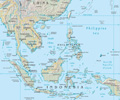ASEAN takes a big step towards a landmark digital economic pact

Southeast Asian countries have reached an important milestone in negotiating the world’s first comprehensive regional digital economy agreement, paving the way for digital integration in a market of nearly 680 million people.
At a meeting in Kuala Lumpur, Malaysia, the Association of Southeast Asian Nations (ASEAN) announced it had reached a “substantial conclusion” in negotiations on the Digital Economic Framework Agreement (DEFA) in the region. The announcement marked a major step in more than two years of negotiations, which included 14 rounds of negotiations.
ASEAN’s DEFA is now poised to become the world’s first regional agreement focused exclusively on digital economic governance. In contrast to the digital provisions embedded in broader trade agreements, the pact stands out as a specific framework designed to harmonize digital trade regulations, enable trusted cross-border data flows and establish coherent rules for paperless trade, e-commerce, cybersecurity and digital payments across ASEAN.
A $2 trillion digital future
The economic stakes involved are enormous as ASEAN’s digital economy continues to grow rapidly. It is currently worth around $300 billion, and is expected to reach $1 trillion by 2030, a figure that has the potential to double to $2 trillion if DEFA implementation is successful.
Indonesia, which leads the digital economy in the region with a valuation of $90 billion in 2024, is reported to see its digital economy triple to $360 billion by 2030, with e-commerce accounting for $150 billion.
By 2023, 71% of all venture capital transactions in ASEAN will be related to the digital economy, 11% higher than the global average. Meanwhile, announced annual investments in communications, data processing and hosting services have increased nearly sixfold in the past ten years, from $777 million in 2015 to $4.4 billion in 2024.
From fragmentation to integration
DEFA ASEAN seeks to bridge the region’s diverse digital landscape, bringing together economies to collectively advance digital finance and infrastructure.
“Without common digital rules and standards, this diversity risks creating fragmentation,” ASEAN Secretary General Kao Kim Hourn wrote in a Forum Stories article in May. “This comprehensive approach reduces regulatory disparities, lowers transaction costs and creates a seamless and interoperable digital ecosystem that benefits ASEAN and its partners.”
Inclusion is critical in DEFA ASEAN with talks including extensive consultations with governments, business leaders, academics, and micro, small and medium enterprises (MSMEs). A participatory approach, officials said, is very important considering that MSMEs account for at least 97% of businesses in ASEAN and provide 85% of jobs.
Through simplified digital regulations and increased e-commerce access, DEFA ASEAN aims to enable MSMEs to expand across national borders, integrate into regional value chains and compete globally. The agreement also creates pathways for women entrepreneurs, rural innovators and youth-led start-ups, with provisions that support skills development, talent mobility and digital literacy.
“[DEFA’s] “These provisions represent ASEAN’s collective commitment to deepen cooperation and enhance our competitiveness while ensuring that the benefits of digitalization are accessible to all,” the bloc said in its official statement. “Through DEFA, ASEAN will be able to leverage cross-border digital integration and interoperability across the region.”
A model for the digital age
The World Economic Forum has supported the ASEAN DEFA negotiation process from the start through the ASEAN Digital Economy Agreement Leadership (DEAL) project.
The initiative creates an online repository that provides centralized access, clause by clause, to dozens of digital economy and free trade agreements that have substantive commitments to e-commerce and digital trade. This platform, which details the relevance of these agreements for ASEAN countries, has enabled detailed legal mapping and comparative analysis, thereby facilitating evidence-based decision-making for negotiators.
In addition, the Forum has held various business dialogues and stakeholder consultations, ensuring ASEAN DEFA reflects not only the priorities of policymakers but also the perspectives of businesses and consumers who drive regional economic growth. Through its annual business survey on the ASEAN digital economy, the Forum also helps provide first-hand insights and data to inform member country negotiators on key topics and trends related to the digital economy.
In its statement, ASEAN said it expects the ASEAN DEFA to be signed by the end of 2026, and stated that “the real benefits of the pact will only be realized if the agreement is fully completed, signed on time, and implemented effectively.”
Source: World Economic Forum
